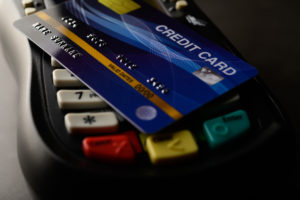11 Mar WHAT TO DO ABOUT FRAUDULENT CREDIT OR DEBIT CARD CHARGES
It’s an awful feeling to learn that someone has used your credit or debit card to make fraudulent charges. Whether you’re liable for charges typically depends on the type of card, whether you still possess the card and when you alert the issuer.
Credit cards
If your credit card is lost or stolen and you report it to the card provider before it’s used in a fraudulent transaction, you can’t be held responsible for any unauthorized charges. If you report it after unauthorized charges have been made, you may be responsible for a specified dollar amount in charges. Some card issuers have decided not to hold their customers liable for any fraudulent charges regardless of when they notify the card company. And if your account number is stolen but not the actual card, your liability is $0. But either you or the card issuer must identify the fraudulent transactions for them to be removed.
Debit cards
 If you report a missing debit card before any unauthorized transactions are made, you aren’t responsible for any unauthorized transactions. If you report a card loss within two business days after you learn of the loss, your maximum liability for unauthorized transactions is $50.
If you report a missing debit card before any unauthorized transactions are made, you aren’t responsible for any unauthorized transactions. If you report a card loss within two business days after you learn of the loss, your maximum liability for unauthorized transactions is $50.
But if you report the card loss after two business days but within 60 calendar days of the date your statement showing an unauthorized transaction was mailed, liability can jump to $500. Finally, if you report the card loss more than 60 calendar days after your statement showing unauthorized transactions was mailed, you could be liable for all charges.
What if you notice an unauthorized debit card transaction on your statement, but your card is still in your possession? You have 60 calendar days after the statement showing the unauthorized transaction is mailed to report it and avoid liability.
Safest choice
If you’re unsure about the specific conditions that trigger liability for unauthorized charges, contact your card issuer.



